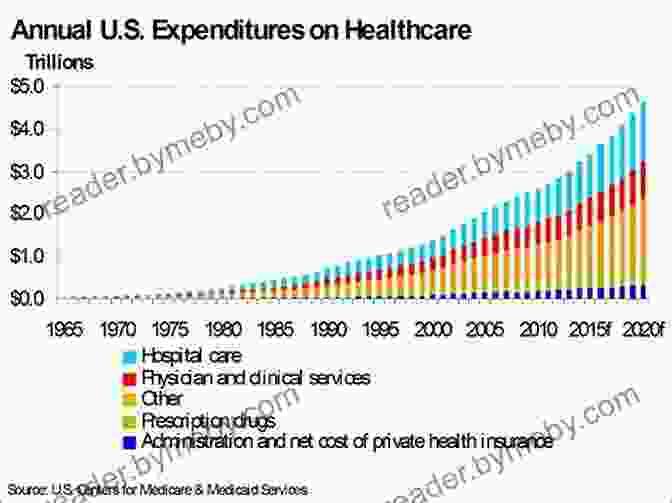Unveiling the Hidden History of Corporate Health Care: An Exploration of "The Public Creation Of The Corporate Health Care System"

The American healthcare system, often mired in controversy and debate, is a complex tapestry woven from decades of policy decisions and societal shifts. In the groundbreaking book "The Public Creation Of The Corporate Health Care System," author Gerald Markowitz meticulously unravels the hidden history behind this labyrinthine system, revealing the profound influence of corporate interests in shaping its evolution.
4.5 out of 5
| Language | : | English |
| File size | : | 1174 KB |
| Text-to-Speech | : | Enabled |
| Screen Reader | : | Supported |
| Enhanced typesetting | : | Enabled |
| Word Wise | : | Enabled |
| Print length | : | 372 pages |
Genesis of a Corporate Empire

Markowitz begins by tracing the roots of corporate healthcare back to the early 20th century, when a confluence of factors—rising medical costs, technological advancements, and a growing middle class—created a fertile ground for the expansion of health insurance. Initially, this insurance was provided by non-profit organizations and labor unions, offering a safety net against unpredictable medical expenses.
However, the seeds of corporatization were sown during World War II, when the government implemented a wage freeze. To compensate for this, employers began offering health insurance as a fringe benefit, a move that would later prove to be a pivotal turning point. As more and more companies followed suit, the health insurance industry rapidly expanded, creating a lucrative market for private insurers.
The Rise of Managed Care

In the 1970s, the concept of managed care emerged as a response to spiraling healthcare costs. This approach sought to control expenses by limiting patient choice and negotiating lower rates with healthcare providers. Initially, managed care was implemented through Health Maintenance Organizations (HMOs),which provided comprehensive care for a fixed monthly fee.
As managed care gained traction, large corporations began to acquire HMOs, transforming them into profit-making enterprises. This shift marked a fundamental change in the healthcare landscape, as the pursuit of profits became a driving force in decision-making. Consequently, patients faced increased restrictions on their access to care, while healthcare providers struggled under the weight of cost-cutting measures.
Privatization and Public Policy

Throughout the latter half of the 20th century and into the 21st, the trend towards privatization of healthcare accelerated. Government policies, such as the Employee Retirement Income Security Act (ERISA) of 1974, further solidified the role of private insurers and employers in the healthcare system. ERISA exempted employee benefit plans from state regulation, allowing employers to design and administer their own health insurance programs.
As a result, the government's role in healthcare provision diminished, while private corporations gained unprecedented influence. This shift not only led to a fragmented and complex healthcare system but also exacerbated disparities in access and affordability for many Americans.
The Consequences of Corporate Control

The corporatization of healthcare has had profound consequences for the American people. Markowitz meticulously documents the impact on various stakeholders:
- Patients: Faced with limited choice, higher costs, and increased administrative burdens, patients often struggle to access the care they need.
- Healthcare Providers: Pressured to reduce costs and increase efficiency, healthcare providers experience burnout and diminished autonomy, affecting the quality of care they can provide.
- Government: While delegating responsibility for healthcare to private corporations, the government has struggled to regulate the industry effectively, leading to market failures and a lack of accountability.
Reclaiming Public Control

"The Public Creation Of The Corporate Health Care System" not only exposes the hidden history of corporate influence but also offers a path towards reclaiming public control over healthcare. Markowitz argues for a fundamental restructuring of the system, empowering the government to play a more active role in regulating and providing healthcare.
By shifting the focus away from profit maximization and towards the well-being of the public, Markowitz envisions a healthcare system that is equitable, affordable, and responsive to the needs of all Americans.
"The Public Creation Of The Corporate Health Care System" is a must-read for anyone seeking a deeper understanding of the forces that have shaped American healthcare. Gerald Markowitz's meticulous research and compelling narrative provide a comprehensive account of how corporate interests have come to dominate this vital sector.
This groundbreaking book is not merely a historical document but a clarion call for action. It challenges us to confront the consequences of unchecked corporate influence and to work collectively towards a more just and equitable healthcare system for all.
4.5 out of 5
| Language | : | English |
| File size | : | 1174 KB |
| Text-to-Speech | : | Enabled |
| Screen Reader | : | Supported |
| Enhanced typesetting | : | Enabled |
| Word Wise | : | Enabled |
| Print length | : | 372 pages |
Do you want to contribute by writing guest posts on this blog?
Please contact us and send us a resume of previous articles that you have written.
 Book
Book Novel
Novel Page
Page Chapter
Chapter Text
Text Story
Story Genre
Genre Reader
Reader Library
Library Paperback
Paperback E-book
E-book Magazine
Magazine Newspaper
Newspaper Paragraph
Paragraph Sentence
Sentence Bookmark
Bookmark Shelf
Shelf Glossary
Glossary Bibliography
Bibliography Foreword
Foreword Preface
Preface Synopsis
Synopsis Annotation
Annotation Footnote
Footnote Manuscript
Manuscript Scroll
Scroll Codex
Codex Tome
Tome Bestseller
Bestseller Classics
Classics Library card
Library card Narrative
Narrative Biography
Biography Autobiography
Autobiography Memoir
Memoir Reference
Reference Encyclopedia
Encyclopedia Walter Enders
Walter Enders Mari Schuh
Mari Schuh Noret Flood
Noret Flood Marjorie Druker
Marjorie Druker Matthew Vanfossan
Matthew Vanfossan Orlando Wilson
Orlando Wilson Phil Huber
Phil Huber Maurice White
Maurice White Richard Eyre
Richard Eyre Tae Keller
Tae Keller Phoebe Damrosch
Phoebe Damrosch Robin Green
Robin Green Meg Ripley
Meg Ripley Ralph Zuranski
Ralph Zuranski Louis Barthas
Louis Barthas Marcus Richardson
Marcus Richardson Sue Rogers
Sue Rogers Kris Wilder
Kris Wilder Wijnand Jongen
Wijnand Jongen Lee Craker
Lee Craker
Light bulbAdvertise smarter! Our strategic ad space ensures maximum exposure. Reserve your spot today!

 F. Scott FitzgeraldBulletproof Putting in Five Easy Lessons: Master the Art and Sink Putts Like...
F. Scott FitzgeraldBulletproof Putting in Five Easy Lessons: Master the Art and Sink Putts Like...
 Banana YoshimotoImmerse Yourself in Spanish: A Comprehensive Guide to Reading and Translation...
Banana YoshimotoImmerse Yourself in Spanish: A Comprehensive Guide to Reading and Translation... Dan BellFollow ·18.7k
Dan BellFollow ·18.7k Oscar WildeFollow ·10k
Oscar WildeFollow ·10k Robert HeinleinFollow ·19.1k
Robert HeinleinFollow ·19.1k Isaac AsimovFollow ·6.7k
Isaac AsimovFollow ·6.7k Jacques BellFollow ·8.5k
Jacques BellFollow ·8.5k Cason CoxFollow ·5.5k
Cason CoxFollow ·5.5k Brady MitchellFollow ·19.5k
Brady MitchellFollow ·19.5k Derek BellFollow ·14.1k
Derek BellFollow ·14.1k

 Wayne Carter
Wayne CarterThe Beginner's Guide to Making an Old Motor Run Forever
If you're like most...

 Deacon Bell
Deacon BellNepali Adventure: Kings and Elephant Drivers,...
In the heart of the...

 Carlos Drummond
Carlos DrummondThe Romantic Revolution: A Journey Through History and...
Unveiling the...

 Kazuo Ishiguro
Kazuo IshiguroUnlock Your Inner Innovator: Dive into the New Wave...
Embark on a Transformative Journey of...

 William Golding
William GoldingCrazy Horse: The Lakota Warrior's Life and Legacy
In the annals of Native...

 Hector Blair
Hector BlairMildred and Richard Loving: The Inspiring Story of...
Mildred and Richard Loving were an...
4.5 out of 5
| Language | : | English |
| File size | : | 1174 KB |
| Text-to-Speech | : | Enabled |
| Screen Reader | : | Supported |
| Enhanced typesetting | : | Enabled |
| Word Wise | : | Enabled |
| Print length | : | 372 pages |








